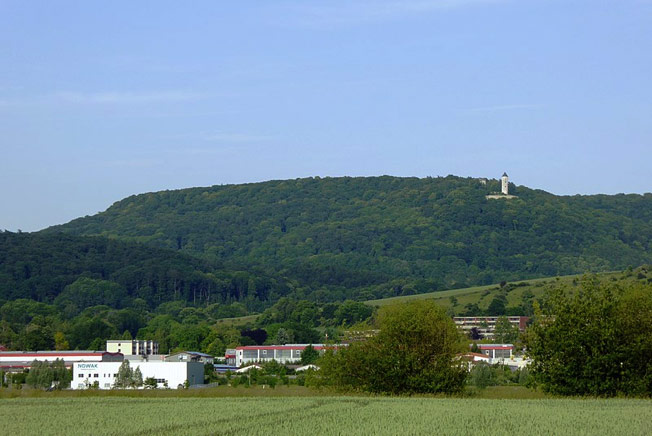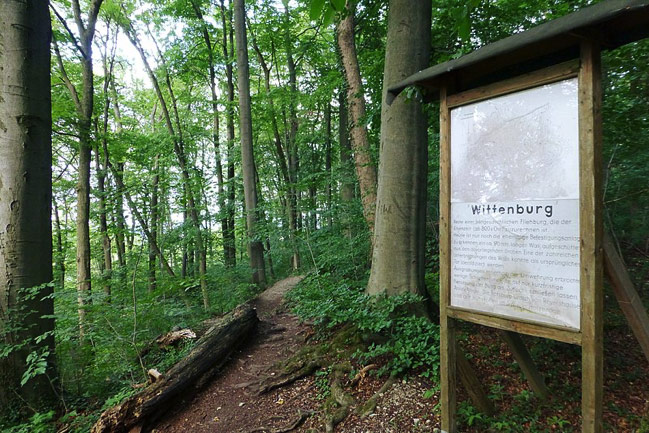Prehistoric Wittenburg Castle Ruin
Not much is known about the few ruins on the northern rampart of the Wittenberg Mountain[1] other than that a fortified refuge existed here about 2,500 years ago. Archeological work conducted in the sixties revealed the rough outline of the castle’s walls and footprint and further led to the speculation that it was built mainly as a refuge for nearby populations in times of need. Evidence of ceramic finds points to a time frame from the late Iron Age Hallstatt culture, from about 600 BC to the early La Tène culture, about 450 BC.[2]
The question then arises about how this particular Wittenburg castle obtained its name. A whole lot later of course, and it is perhaps as simple as the association with the name of the mountain on which it is located, the Wittenberg, which was used by locals to also to designate the ‘burg’, the castle. Incidentally, this low mountain range is also part of the headwaters of the small Leine River (see also Wittenburg-Elze, Lower Saxony) and the composition of rocks here is that of white shell limestone too, which could well be at the origin of naming this mountain range.


For those who can read and understand German, the guide book quoted below, although not offering much more on the Wittenburg, is more expansive on other archaeological sites in the region and a helpful companion for amateur archaeologists. As to hiking on the Wittenberg mountain and visiting the site of the Wittenburg Castle, an internet search will bring up a number of good regional route planning websites.
References/Links
[1] Wittenberg Mountain, Göttingen Forest
[2] Führer zu archäologischen Denkmälern in Deutschland – (Guide to archaeological sites in Germany) – Stadt und Landkreis Göttingen, page 251, Sven Schütte